Interview and Video by Jedarrian Jones. Photos provided by Dallas TRHT.
As conversations around racial equity and justice continue to evolve, organizations like Dallas Truth, Racial Healing & Transformation (TRHT) are leading the way in reshaping community narratives and policies. Founded in 2016, Dallas TRHT is committed to creating a more equitable city through the power of storytelling, relationship building, and actionable change. Through their “Racial Equity Now” program, they have impacted numerous organizations, helping to address the historical and systemic challenges related to race and racism in our communities.
At the helm of this important work is Executive Director Jerry Hawkins, a thought leader in racial equity and a driving force behind initiatives that seek to build bridges across the divides of race, place, and history. With an impressive background that spans leadership roles in early childhood initiatives and racial equity advisory boards, Jerry brings a wealth of knowledge and a deep passion for creating transformative change in Dallas. We checked in with Jerry to discuss his journey with Dallas TRHT, the challenges of sustaining racial equity work, and his vision for a more inclusive future.
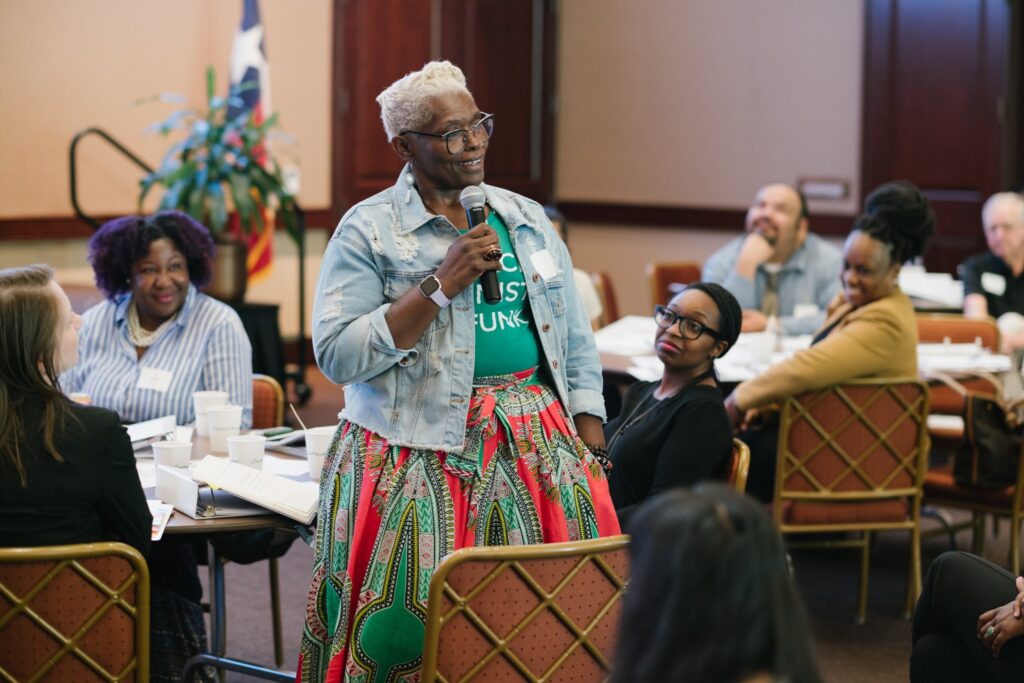
Jerry: Dallas Truth, Racial Healing & Transformation (TRHT) started in 2016 when the W.K. Kellogg Foundation brought together over 200 community members, scholars, doctors, and lawyers from around the country to study the effects of TRC, or “Truth and Reconciliation Commissions” around the world. They wanted to create a model to pilot in the United States. In 2017, the Kellogg Foundation decided on 14 communities, and Dallas was named one after the 2016 police shooting. In 2017, we got to work. Our mission is to create a radically inclusive Dallas-Fort Worth by addressing race and racism through the TRHT framework, which includes narrative change, relationship building, and equitable policies and practices.
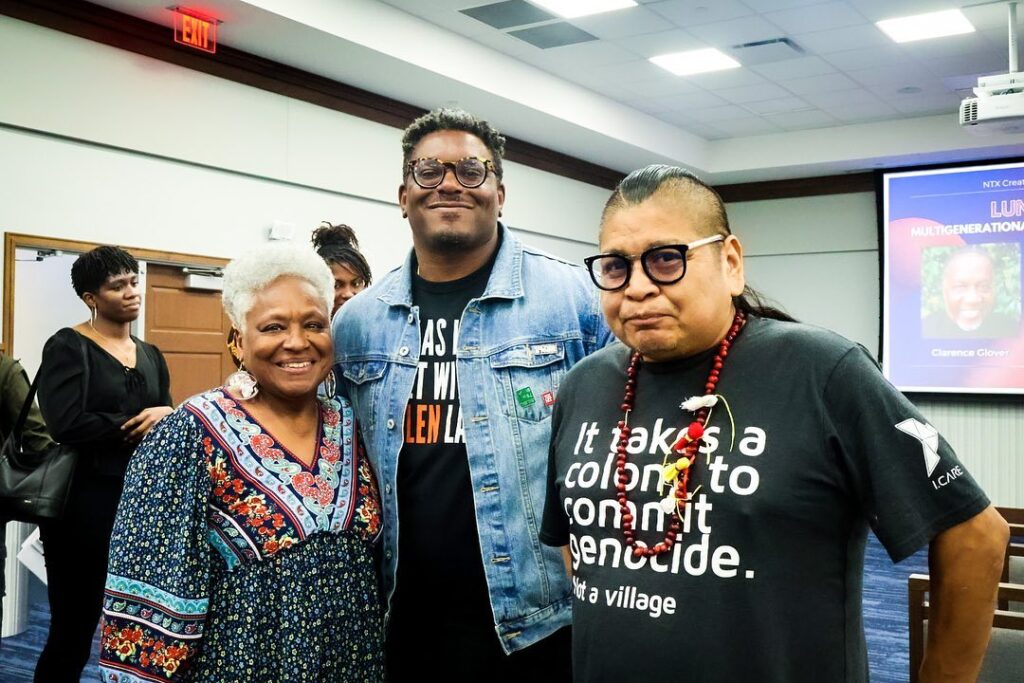
Jerry: Dallas TRHT offers community-focused programs designed to build capacity and foster equity. Our primary initiative, Racial Equity Now, is a fellowship program that supports organizations in their journey toward racial equity. This program is unique because it involves not just individuals but entire organizations, including board members, executive staff, and direct-level staff.
Participants in Racial Equity Now attend monthly meetings where they explore the history of race and racism in Dallas, participate in a racial history tour, and engage in racial healing practices. They conduct organizational assessments to identify areas for improvement and develop a “Racial Equity Theory of Change,” which serves as a roadmap for achieving racial equity. Additionally, organizations can create and receive funding for new programs or projects, with grants up to $10,000.
Over the past four years in Dallas and the last two years in Fort Worth, we’ve partnered with 72 organizations, distributing over $720,000 in grants to support innovative racial equity projects. These resources are crucial for transforming communities from a deficit mindset to an asset-based one and for building stronger, more collaborative relationships across segregated communities.
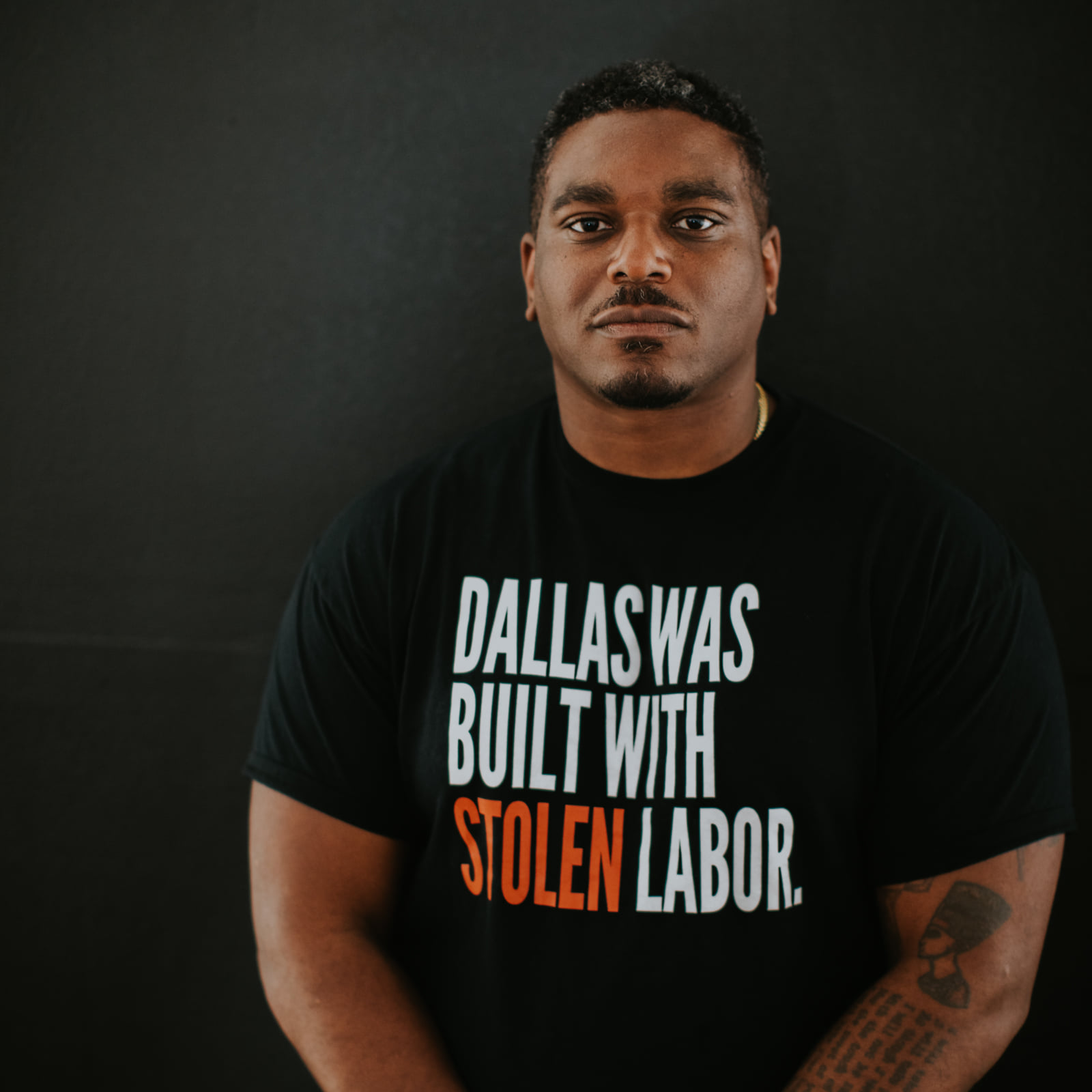
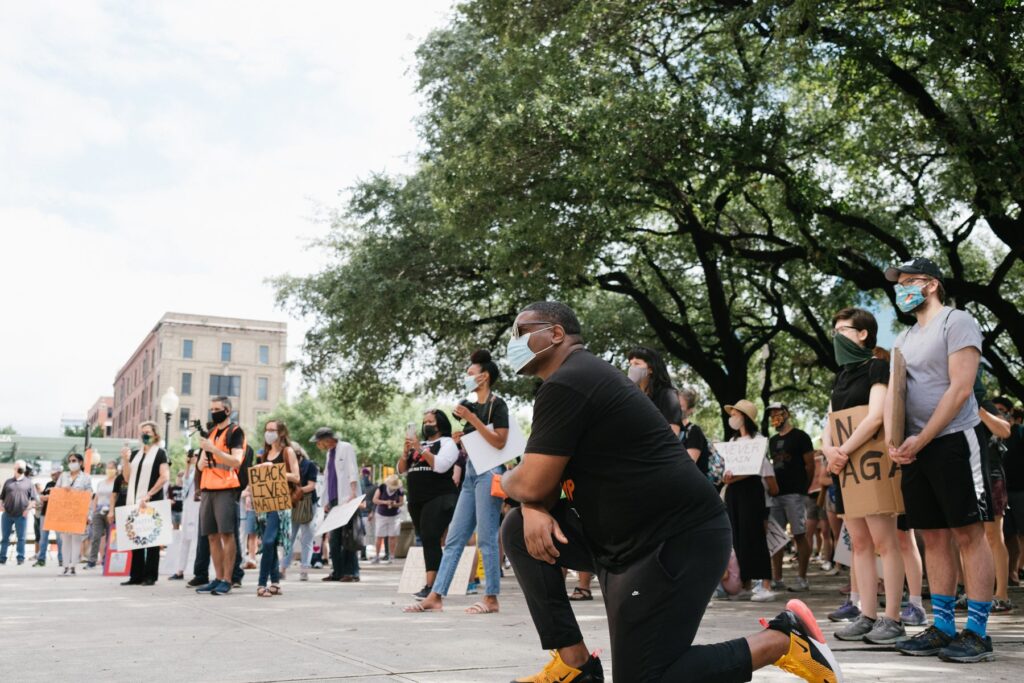
The biggest challenge is securing sustainable funding. Back in 2020, there was a lot more attention on racial equity and justice, especially in the wake of the pandemic and the murders of George Floyd, Breonna Taylor, and Ahmaud Arbery. People were generous in their support during that time. However, four years later, it seems like many have forgotten that these community-level, state-level, and federal issues take time to address, and we need ongoing, sustainable support to continue this work.
We’ve collaborated with over 150 community partners and have a Community Innovation Lab that has awarded more than $300,000 to help community members develop and grow their ideas. We’ve shared our space with dozens of organizations and continue to support and sponsor their work as well. We’ve been generous in our giving to the community, and we want to continue that—but sustainable support remains our biggest hurdle.
The second challenge is staying focused on these issues to truly bring about change. People often ask, “When will we move past this?” But we can’t heal or move forward as a community without addressing the truth of what has happened in the past. Our focus is on that process—acknowledging the truth, healing, and then moving forward together.
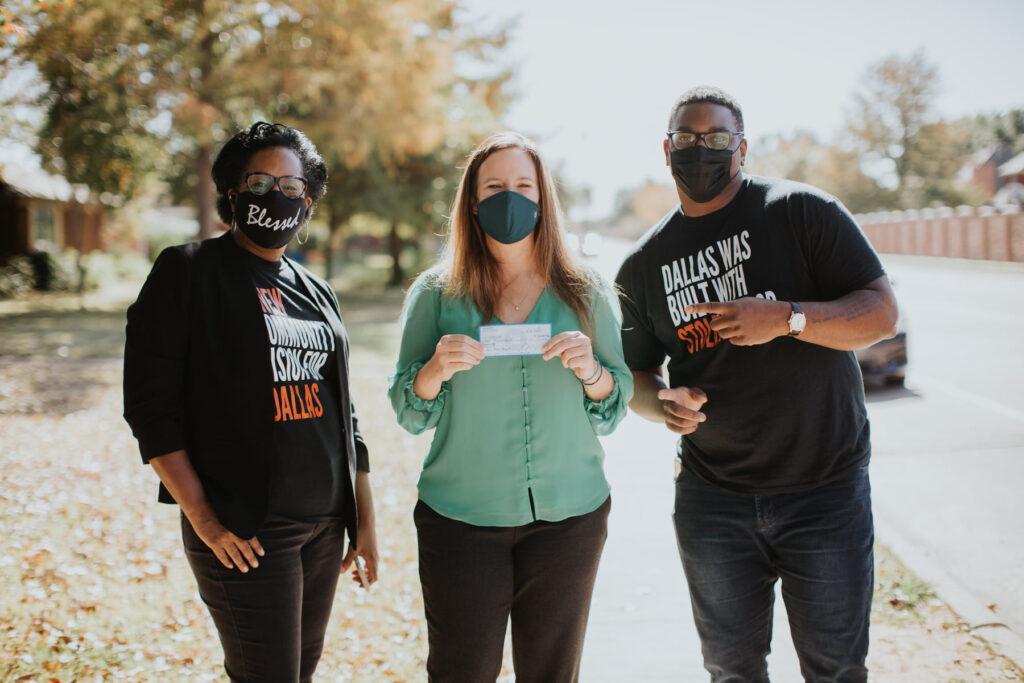
Jerry: I’m most proud of how we’ve changed the narrative around our community. Right now, we’re working on a documentary series with KERA about historic places in Dallas and the people connected to them. One of the biggest shifts we’ve made is in acknowledging our Native American community—not just recognizing that they existed here, but understanding that they were here long before Dallas became a city. Today, there are still thousands of Native American and American Indian people living here, and I believe we’ve helped change the way people see that part of our history.
We’ve also educated people on Dallas’s history as a site of enslavement, Confederate resistance, and Jim Crow laws. By bringing these memories to the surface, we can finally address and, hopefully, repair the damage. So, I’m proud of how we’ve tackled narrative change in our community.
In addition to that, I’m proud of the resources we’ve provided. We’ve partnered with large organizations like United Way, the Dallas Mavericks, and the Dallas Stars. We’ve also worked with grassroots groups like The Afiya Center and American Indian Heritage Day, and we continue to support organizations like Rio Planning. Through all of this, we remain committed to serving our community and supporting the work they need to do.
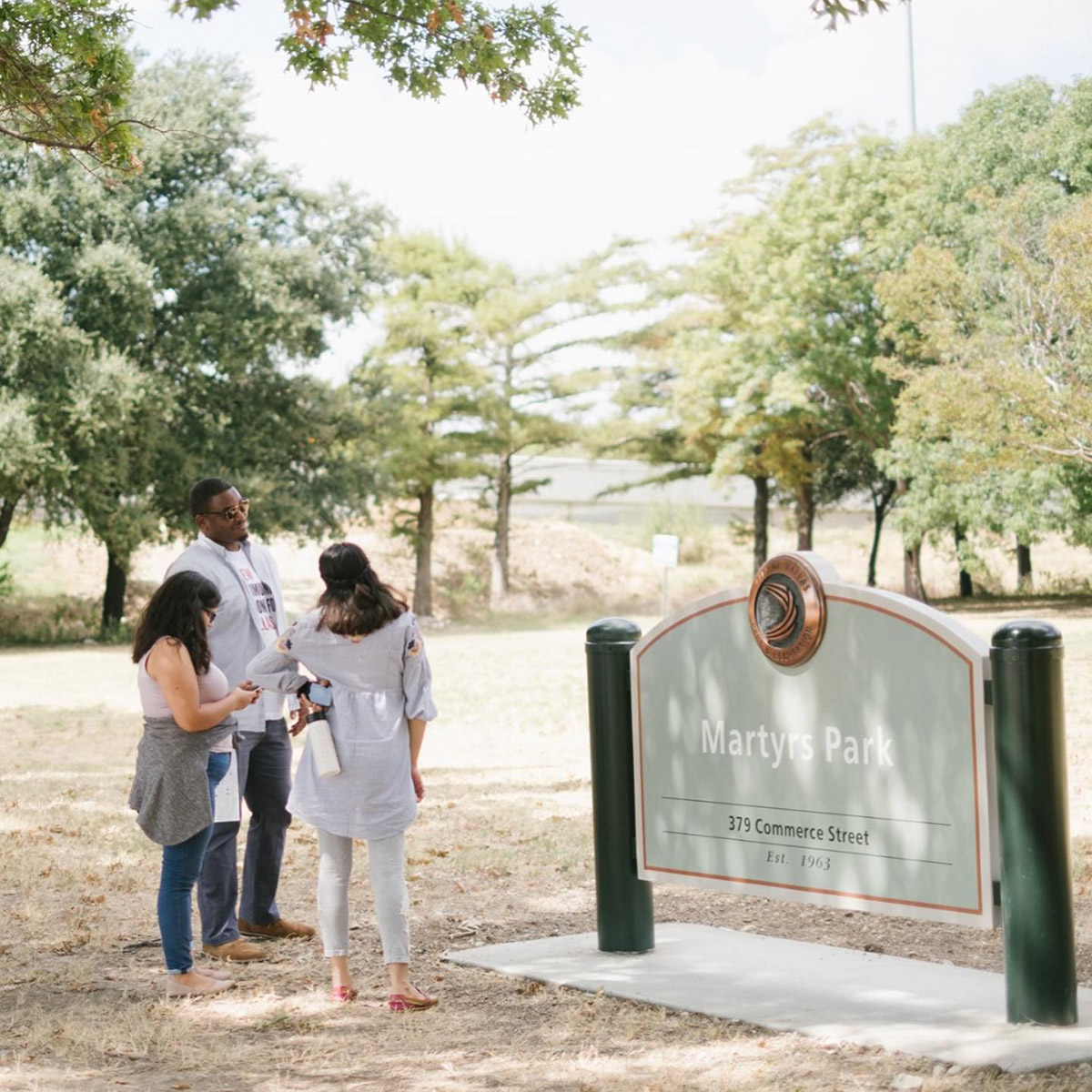
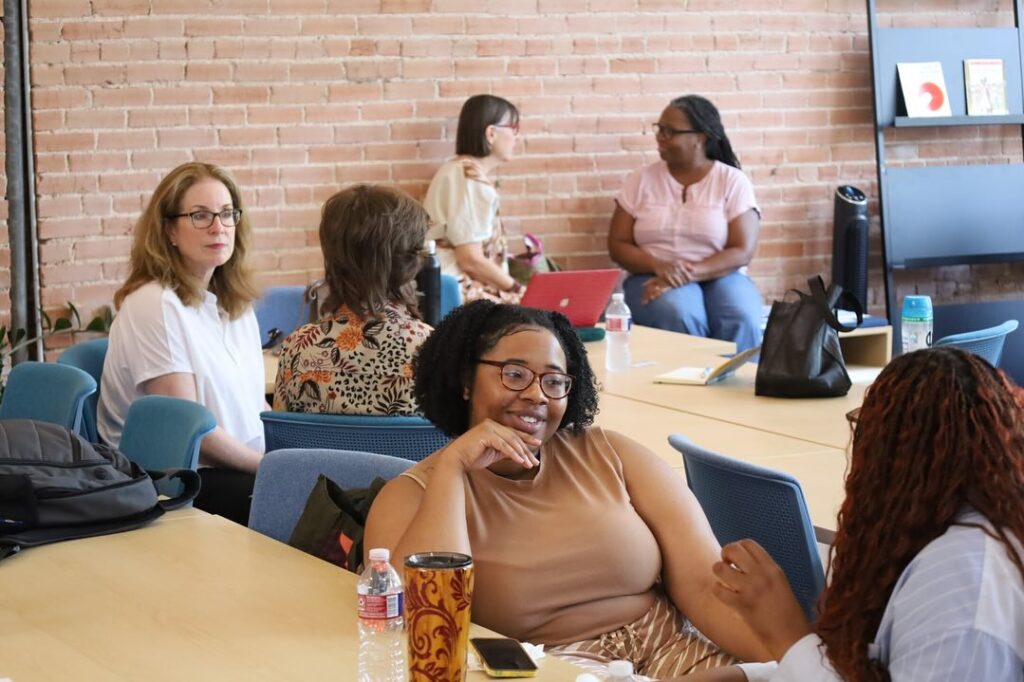
Jerry: The community can get involved with our work in several ways.
We’re launching a new initiative called Women of Color Rising, which includes three cohorts: the first pilot session will start in fall 2024, followed by sessions in spring 2025 and fall 2025. If you’re a woman of color interested in a healing process, building solidarity, and working on economic mobility, this program is for you.
We also have the Racial Justice Community of Practice, sponsored by the Dallas Foundation. This initiative brings together our community partners and participants from our various programs to learn from each other, collaborate, and support one another. The final session of this community of practice will take place in November.
Additionally, we’re collaborating with KERA on a video project that will launch this fall. We’ll host community screenings at our TRHT office and other locations. The project includes five episodes covering topics like Little Asia, East Dallas, and West Dallas, and it promises to be a compelling exploration of our community’s history.
We welcome your support in any form, whether through donations on North Texas Giving Day or any other day. Your contributions help us continue our important work and support the community.
Dallas Doing Good is proud to continue our partnership with the Communities Foundation of Texas for North Texas Giving Day! This year, we’re spotlighting outstanding organizations that align with CFT’s focus areas—Health, Wealth, Living, and Learning.
Join us in supporting these impactful organizations. Your donations help drive innovation and support essential services in our community. Learn more and give today at Dallas TRHT’s North Texas Giving Day page. Together, we make a difference!
Sign up with your email address to receive good stories, events, and volunteer opportunities in your inbox.